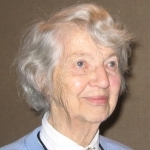 (HOST) When the snow piles up and temperatures dip, many families enjoy old fashioned board and card games. Commentator Edith Hunter’s family was – and is – one of them.
(HOST) When the snow piles up and temperatures dip, many families enjoy old fashioned board and card games. Commentator Edith Hunter’s family was – and is – one of them.
(HUNTER) When I was a little girl one of our favorite family games was Authors. In the version we used, copyright 1893, there were eighteen well known authors – Shakespeare, Longfellow, Scott, Irving, Tennyson, Hawthorne, Dickens, Byron, Whittier, Dumas, Lowell, Holmes, Thackery, with four now lesser-known writers, Charles Kingsley, Bayard Taylor, J. G. Holland, and Wilkie Collins.
The point of the game was to get a complete set, four cards, of one author. For example, for Shakespeare, it was necessary to get the card of Othello, Hamlet, Macbeth, and the Shakespeare card, named for the author himself. Selecting one author from your hand, for example Dickens, you turned to another player and asked for a book by that author that you didn’t already have. If I had Oliver Twist, I might ask someone for David Copperfield. If he had it, he had to give it to me and I would get another turn. If he didn’t have it, I would then go to the draw pile. If by some miracle, I picked up David Copperfield, I would get another turn. Otherwise, I just added the card to my hand, and then it was the next player’s turn. The person who acquired the most sets, won the game.
When my children were growing up, we too enjoyed the game of Authors, but a more recent edition. I do not find a copyright date on those cards, but my guess is it was about 1940. This version had only eleven authors. The first seven in the 1893 edition and four others – Twain, Stevenson, Cooper, and one woman, Louisa May Alcott. Grandson Sammy and I also used this version of the game.
One day Sammy and Will arrived with a still newer version. This one was limited to American Authors. There were no authors from the two earlier editions. The thirteen American Authors were Robert Frost, Walt Whitman, Herman Melville, Henry James, Theodore Dreiser, Eugene O’Neil, F. Scott Fitzgerald, William Faulkner, Thomas Wolfe, John Steinbeck, and Ernest Hemingway, There was one woman, Willa Cather, and one black, James Baldwin.
An attractive new feature of the game was a brief biographical sketch of about three lines per card. After collecting all four cards and lining them up in the proper order, the brief biography of the author could be read. It included his or her dates, place of birth, and literary and social significance.
I wonder if Sammy’s children will play with yet another version or will they just play computer games?